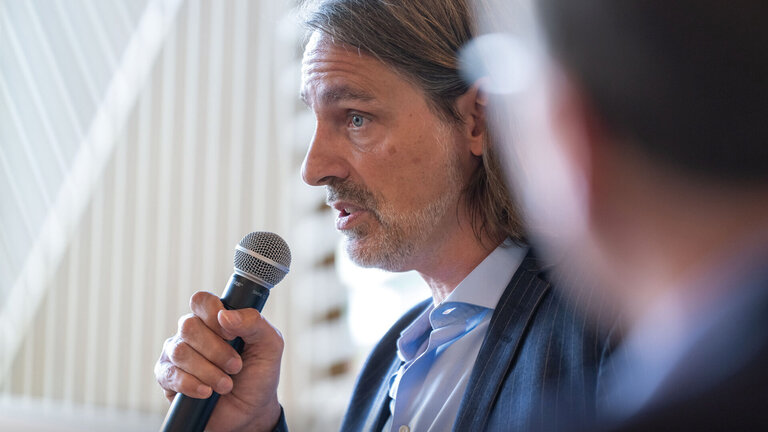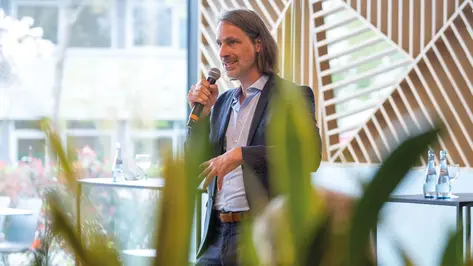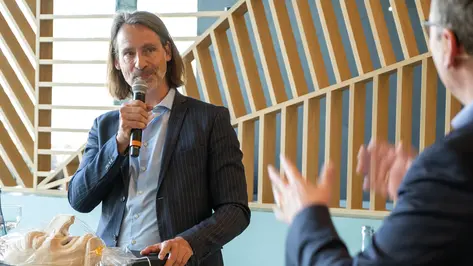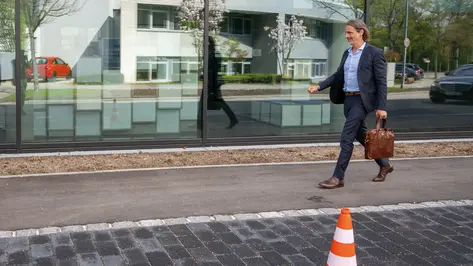There are two ways of looking at the world, two mindsets that have always been wary of each other, but which – were they to engage with each other – could make a huge difference.
One is the humanist perspective, which today at least, smacks vaguely of dusty books and empty talk. This worldview strives for an (initially largely retrospective) understanding of people and their products, and often goes hand in hand with insight into the limits of one’s own knowledge. To put it succinctly, a certain degree of pessimism is not without good reason.
The other point of view is scientific. It understands existence as fundamentally analyzable and explicable. Problems are merely undiscovered solutions. This results in optimism regarding the future that has been – at least until recently – unbroken: The world can be shaped according to people’s ideas. Challenges can invariably be mastered – if you have a clear plan.
Precht shows what mediation could look like
Although the second worldview has been extremely successful over the past two and a half centuries or so, it cannot be overlooked that things are becoming increasingly difficult. Despite ever greater intervention in the world down to the subatomic level and an ever better explanations of chemo-physical relationships, carbon emissions continue to rise. The extinction crisis continues unabated. Plastic waste continues to accumulate in oceans. Key resources are becoming scarcer. And we lose valuable soil and arable land day after day.
At this point, Richard David Precht presents an attempt at mediation. He presents it in the form of books, essays and lectures – for example at an event in Drees & Sommer’s new OWP12 building. In doing so, Precht does not claim to be the first to build bridges between ‘the two cultures’ (a term coined by the scientist C. P. Snow). And he frankly admits that he has no construction expertise whatsoever. Nevertheless, his mediation proposal seems attractive, especially in view of the global challenges: With his background as a philosophical generalist (first culture), he wants to integrate the islands of engineering knowledge (second culture) that are currently isolated from each other. On this afternoon at Drees & Sommer, he wants to bring together people including structural engineers, systems designers, CREM experts, IT specialists, and design architects. The overarching goal is a second act of mediation: For Richard David Precht, this ‘wrong’ bifurcation of behavioral change (usually equated with going without) and technological innovation must be overcome.
Technology should ensure the future is like the present. But greener.
This deviates from the mainstream view. Usually, technical innovations are intended to protect against the impositions of a capped ‘global reach’ (as sociologist Hartmut Rosa puts it). Or to put it another way: The fact that new technology protects people from involuntary behavioral changes is more than just a random side effect. Examples: Electromobility allows us to continue to drive cars. In a few years, the envisioned hydrogen fuel cell in aircraft will allow us to fly off on holiday without feeling guilty. Alternative building materials will allow us to maintain the construction volume of the past years and decades. And the unspoken wish behind all of this is that, thanks to technology, the future can continue to be like the present – and we won’t have to adapt.
Precht sees it differently. For him, the ‘necessary behavioral changes and technological innovations go hand in hand’. “It’s just that nobody talks about the former,” says the philosopher. To give an example: Precht believes that the electrification of our mobility is the right way forward – if it is accompanied by a significant downsizing of cars, as pioneers of the e-car concept propagated back in the 1980s.
Richard David Precht considers all this to be possible, even unavoidable. And for him, the German small and medium-sized enterprises will be the motor and agents of this change. He views its players as having the necessary value orientation and the perspective for long-term change. “German SMEs have the tenacity to claim the future,” is his optimistic summary. So let’s claim it!



